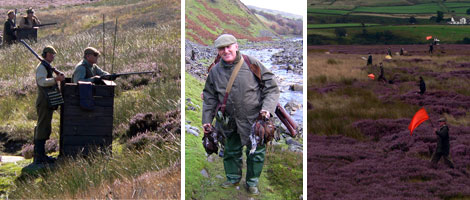HUNTing for sustainability
Research on the impact of hunting on biodiversity has shown that hunting can be a force for good in conserving biodiversity. There is evidence that hunting can achieve goals for biodiversity because of the conservation focus many hunting systems have.
But where hunting has negative consequences there are strong cultural reasons why this is maintained. Thus there is a need to understand the cultural and institutional frameworks in which hunting operates if policy is to achieve the goal of utilizing hunting to managing our wildlife sustainably.

Photo: N. Bunnefeld
Latest publications
- Nuno, A., Bunnefeld, N., Naiman, L., Milner-Gulland, E.J. (in press) A novel approach to assessing the prevalence and drivers of illegal bushmeat hunting in the Serengeti. Conservation Biology. doi: 10.1111/cobi.12124
- Nuno A., Bunnefeld, N., Milner-Gulland, E. J. (2013) Matching observations and reality: using simulation models to improve monitoring under uncertainty in the Serengeti. Journal of Applied Ecology 50(2): 488–498. doi: 10.1111/1365-2664.12051
http://doi: 10.1111/1365-2664.12051
- Díaz-Fernández, S., Arroyo, B., Viñuela, J., Patiño-Pascumal, I., Riera, P. (2013) Market value of restocking and landscape in red-legged partridge hunting: A study based on advertisements. Wildlife Research 40: 336-343
http://www.publish.csiro.au/paper/WR12191.htm
- Díaz-Fernández, S., Arroyo, B., Casas, F., Martínez-Haro, M., Viñuela, J. (2013) Effect of management on wild red-legged partridge abundance. PLOS ONE 8(6) art. no. e66671
- Delibes-Mateos, M., Díaz-Fernández, S., Ferreras, P., Viñuela, J., Arroyo, B. (2013) The role of economic and social factors driving predator control in small-game estates in central Spain. Ecology and Society 18(2): 38
http://www.ecologyandsociety.org/vol18/iss2/art28/